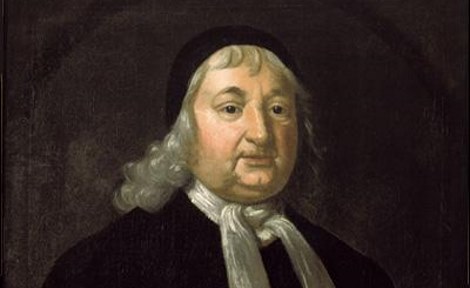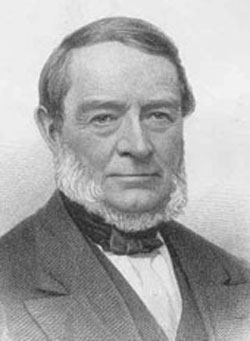Born on October 8, 1800, Abigail May came from a long line of wealthy, prominent Boston families. They included the Sewalls (Judge Samuel Sewall, the “repenting judge,” who had presided over the Salem Witch Trials to which he spent the rest of his life atoning for those actions),

the Mays (who fought in the American Revolution) and the Quincys (her great-aunt Dorothy Quincy, known as Aunt Scott or Aunt Q, had been married to John Hancock, then governor of Massachusetts).

 Abigail’s father, Colonel Joseph May, had been too young to fight in the Revolutionary War but later joined the Independent Corps of Cadets while in his twenties, rising to the rank of Colonel. In 1781 at age twenty-one he went into business for himself, becoming quite successful. He married Dorothy Quincy Sewall four years later; she was also from a distinguished line and counted Abigail Adams, the wife of founding father John Adams, as a cousin. The last of thirteen children (several of whom did not survive), Abba was born after the family had lost its wealth. Two years previous, Colonel May declared bankruptcy because of a speculative land deal gone wrong engaged in by his business partner, and unbeknownst to May. The Colonel was troubled by the resulting financial disaster and the subsequent shame it brought upon his family; he would vow never again to seek material wealth. A devout Unitarian, Colonel May had come to see the pursuit of riches as harmful to his spiritual well-being. Thanks to the help of his in-laws, Joseph was offered a lifetime job with a modest income sufficient for his family. His focus would turn to duty, passing down to his daughter Abba the strong sense of reform and philanthropy which not only guided her life but drew her to Bronson Alcott.
Abigail’s father, Colonel Joseph May, had been too young to fight in the Revolutionary War but later joined the Independent Corps of Cadets while in his twenties, rising to the rank of Colonel. In 1781 at age twenty-one he went into business for himself, becoming quite successful. He married Dorothy Quincy Sewall four years later; she was also from a distinguished line and counted Abigail Adams, the wife of founding father John Adams, as a cousin. The last of thirteen children (several of whom did not survive), Abba was born after the family had lost its wealth. Two years previous, Colonel May declared bankruptcy because of a speculative land deal gone wrong engaged in by his business partner, and unbeknownst to May. The Colonel was troubled by the resulting financial disaster and the subsequent shame it brought upon his family; he would vow never again to seek material wealth. A devout Unitarian, Colonel May had come to see the pursuit of riches as harmful to his spiritual well-being. Thanks to the help of his in-laws, Joseph was offered a lifetime job with a modest income sufficient for his family. His focus would turn to duty, passing down to his daughter Abba the strong sense of reform and philanthropy which not only guided her life but drew her to Bronson Alcott.
Abigail May was raised in the Unitarian Church, attending services with her family at the historic King’s Chapel in Boston.

Gifted with a fine singing voice, Abba grew to love the sacred hymns sung during the service, finding consolation in them. She and her siblings enjoyed family sing-a-longs, led by their father who had a fine bass voice. Teaching her daughters to play the piano, Abba likely passed down songs she had sung with her family such as “Woodland Hallow,” “Auld Lang Syne” and “Home Sweet Home,” along with a large selection of hymns.

In their faith tradition, the May family was committed to a moral life where much was expected of each individual to improve the world around them. Abba’s older brother Samuel Joseph (with whom she enjoyed a close relationship) would attend Harvard Divinity School and become a minister in the Unitarian Church; he would be present at significant moments in the lives of the Alcotts including Anna, Louisa and Elizabeth’s baptisms, and Anna and John Pratt’s wedding. He would also be Abba’s closest confidant and most avid supporter. In his ministry the Reverend May took up the causes of education reform, abolition and women’s rights as would his sister throughout her life. Although as a woman Abba was denied a formal education, Samuel passed along many of his books from his divinity studies to his sister who was most happy to read them.
Abba enjoyed her studies; inspired by her tutor Miss Allyn, she thought about teaching. Her sister Louisa shared that same interest and for a time, they talked about starting a school in their home. Louisa’s engagement in 1821 however, scuttled those plans. Although her father had set the example of duty to others, it was her mother who stoked Abba’s passion for reform. After losing her sisters either to marriage or death, Dorothy and Abba kept confidences, sharing their interests of study, teaching and writing. At the passing of her mother in 1825 Abba wrote, “She loved the doing of a good action better than describing it. She never said great things but has done ten thousand generous ones.” The death of her mother coupled with the remarriage of her father months later to a woman only thirteen years her senior caused Abba to seek refuge in her brother, Samuel’s home in Brooklyn, Connecticut. Her life options limited, she felt lonely and lost; the stage was set for the meeting with Amos Bronson Alcott who spoke of things dear to her heart.
Questions:
- Despite being denied the educational advantages of her brother Samuel Joseph, Abba nurtured dreams of opening a school. Had she not met Bronson Alcott, do you think she could have succeeded in doing so? Or did she envision the possibility through marriage to Bronson?
- Abba was able to share her love of writing only with her mother, Dorothy. Yet she never developed the confidence needed to take her talent to the public arena. In her support of Louisa, do you see Abba fulfilling her own dream vicariously as a writer?

